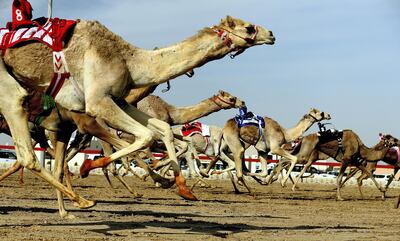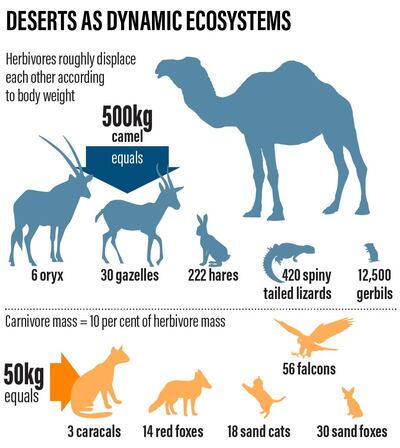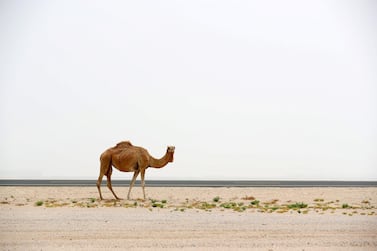Conservationists are urging herd owners to consider their role in the desert ecosystem and combat the devastation caused by camel grazing.
Environment Agency Abu Dhabi is updating legislation and asking herd owners to return to traditional grazing methods.
The agency started a majlis series late last year to encourage herd owners to be active custodians and, while the series has been suspended due to Covid-19, it has continued its outreach online.
Emirati camel owners are being encouraged to graze camels themselves instead of delegating the task to expatriate workers, a practice that contributed to the proliferation of the camel population in recent decades because owners are not restricted by time and are more likely to grow their herds.
“From our point of view, we are not discussing anything about limiting or reducing number of camels or the herd itself,” said Ahmed Al Hashmi, the agency’s acting executive director of Terrestrial and Marine Biodiversity. “In our talks, we are focusing on the sustainable use of natural resources. Our focus is for the camel owners is to be responsible and to think about the future generations.”
So far, the feedback has been positive.
“This is aligned with the tradition,” said Mr Al Hashmi. “In the past fishing and grazing were very sustainable.”
Lucrative prizes and prestige won at camel races have encouraging people to grow their herds. Families who once owned a single camel will now have dozens. There were more than 408,000 camels in Abu Dhabi emirate in 2017, a rise of almost 50 per cent since 2010. At the same time, grazing land has been lost to urbanisation.

Historical data on the camel population of Abu Dhabi does not exist but comparable environments in other countries average about one camel for every five kilometres. At conservative estimates, the number of camels in Abu Dhabi now would be about 18 times higher.
Every camel takes up resources that would be used by other animals and this limits biodiversity, said David Gallacher, a research associate at the University of Sydney, who specialises in Arabian rangeland ecology.
If a camel is fully reliant on the desert for food, it uses resources that could support the equivalent to three caracals, 18 sand cats, 56 falcons or 12,500 gerbils.

Ultimately, people must shift their thinking from considering the desert a commodity to thinking of its health as an ecosystem with healthy biodiversity, said Mr Gallacher, speaking at a webinar on rangeland management hosted by the agency on Thursday.
“If we can change from talking about single species to talking about ecosystems, then we can start to get people thinking in terms of habitats,” he said.
“What are we missing out on and what do we want to get back?” he asked. “If there’s an extra camel out there, that’s replacing something else. Instead of talking about species conservation, let’s talk about ecosystem conservation.”
Sites that have banned grazing have seen dramatic results. At the Dubai Desert Conservation Reserve, the removal of 16 camel farms, and their 1,200 camels led to the doubling of plant species in the following years.
Abu Dhabi could be a leader for rangeland management in a hyper-arid environment, said Jonathan Davies, a global drylands coordinator at the International Union for the Conservation of Nature.
The International Union for Conservation of Nature is establishing rangeland programmes in diverse environments around the world, with projects already under way in Jordan, Kenya and Egypt.
“Really we have a gap, we don’t have enough experiences in these hyper arid environments so I would certainly welcome partnering with you in Abu Dhabi,” said Mr Davies.
“It’s a region where the desert is very iconic, where the desert is highly valued globally,” he said. “It’s part of our global heritage and yours is a region that really could be a global leader in protecting the value of these lands.”







